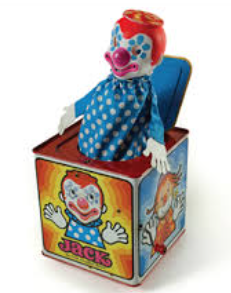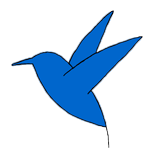 As a psychologist, my job is to help people figure out what cognitive habits and what behavior habits they have developed that get in the way of their happiness, and then help them change those habits. In other words, I help them get a handle on their habits. Allow me to clarify.
As a psychologist, my job is to help people figure out what cognitive habits and what behavior habits they have developed that get in the way of their happiness, and then help them change those habits. In other words, I help them get a handle on their habits. Allow me to clarify.
What Are Habits?
Habits are behaviors that are so well-practiced they become automatic. The behaviors can be physical actions like nail-biting or smoking, or cognitive actions like automatically thinking someone dislikes you if they don’t smile or that you are ugly because you didn’t get the promotion you wanted. For whatever reason the behavior started, good or bad, once habitual, it is hard to break. Simple event-response connections like this comprise even the most complex behavior chains such as those that drive eating disorders and overweight/obesity.
There are many different reasons that habits are difficult to break. However, all habits, physical and cognitive, have two things in common. One is that at some point in your life that behavior was useful. It won you praise, protected you from a dangerous situation, or made you feel better when you felt badly. In other words, whether the reason for it was good or bad, the action served a good purpose. The other thing common to all habits is that they become reflexive, you do them without thinking. People struggling with troublesome habits often feel like jack-in-the boxes; the trigger gets pulled and they react!
What Are Handles?
Handles are things that can be grasped and used to accomplish a purpose. When trying to change habits such as over- or under-eating, the handles that help you accomplish your goals are steps you take to arrange your environment, edit your cognitions, and utilize your social network to make it easier for yourself to replace automatic behavior with new, healthier behavior. Of course, the more you practice healthier behavior, the more habitual it becomes. Ultimately, getting a handle on your habits is taking control of yourself and owning your power!

Design Your Handles
In my book, A Diet is the Last Thing You Need: Weight Loss & Maintenance Answers, we explore the role that habits play in people’s struggle to manage their food intake. Figuring out what circumstances you repeatedly respond to with what behaviors is the first step in designing the handle needed to change those habits. From there, figure out what changes you can make to your environment (both physical and social) as well as what changes you can make in how you talk to yourself (think) about your behavior. These changes will make it easier to achieve your goals. Making those changes is not complicated. It does, however, require effort.
Needed for Success
Whether you are working to improve your physical health or your mental health, success depends on three things. You must:
- Remain mindful, allot time and energy to reflect on your process—be aware of yourself and make decisions based on your actions in the real world. Most people find it extremely helpful to keep a log in which they track their behavior and the situations that most often trigger the habits they are trying to change.
- Use mistakes as opportunities to learn a little more about what triggers you and which of your change strategies need to be tweaked. Then re-think those strategies and tweak them! (This is CPR if you are using the book.) Again, your behavior log will make this easier.
- Show the same compassion for yourself that you would for someone (else) you love. Change is exciting. It is also a non-linear process so slipping and sliding along the way is not only okay, it is essential. Even when you take two steps forward and one step backward, the fact that you are mindful of that movement is a success. Pat yourself on the back for each and every step!
